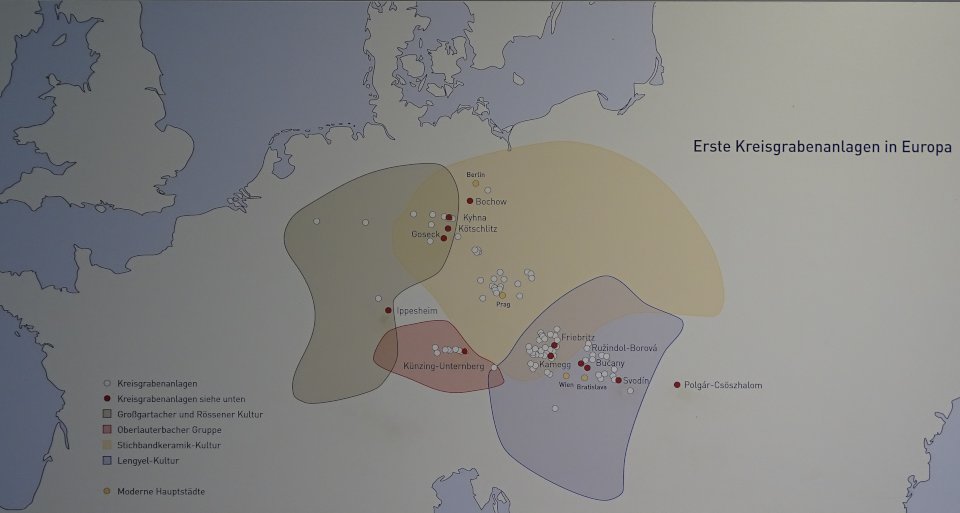
Visited April 2019

Visited April 2019

Visited April 2019

Visited April 2019

Visited April 2019

A stone in the middle of the enclosure points to significant sunrises and sunsets of the year
Visited April 2019

Visited April 2019

Visited April 2019

Visited April 2019

Visited April 2019

A zoom shot from the southeast
Visited April 2019

Finds from the exhibition in the information centre (Goseck Castle)
Visited April 2019

Model of Gosek
Visited April 2019

Visited April 2019

Distribution of circular ditch enclosures
Visited April 2019
The Goseck circle (German: Sonnenobservatorium Goseck) is a Neolithic structure in Goseck in the Burgenlandkreis district in Saxony-Anhalt, Germany. Its construction is dated to approximately 4,900 BC, and it seems to have remained in use until about the 4,700 BC. It may thus be the oldest and best known of the circular enclosures associated with the Central European Neolithic.
The site consists of an approximately circular ring trench with a diameter of approx. 71 m. In the two palisades there are three access routes, which are aligned to the north, southwest and southeast. The gates of the inner palisade, about 49 m in diameter, are narrower than those of the outer palisade, which has a diameter of about 56 m.
The circular ditch enclosure is together with the finding place of the Nebra sky disk, the circular ditch enclosure of Pömmelte, the megalithic tomb Langeneichstädt and the Halle State Museum of Prehistory a station on the tourist road Himmelswege (Celestial Pathways).
The site is located on the northwest outskirts of Goseck, there is a car parking and an access path in the north of Gosek.
In the castle of Gosek there is an interesting exhibition on the Gosek circle and other circular ditch enclosures.
Visited April 2019
The Goseck circle (German: Sonnenobservatorium Goseck) is a Neolithic structure in Goseck in the Burgenlandkreis district in Saxony-Anhalt, Germany.
